Sodium Tetradecyl Injection
$20.00 – $120.00
| Name | Action |
|---|---|
1 Injection, $20/unit $20.00 | |
5 Injections, $15/unit $75.00 | |
10 Injections, $12/unit $120.00 | |
Want to order in bulk / B2B price ? | Send Inquiry |


| SKU | 11031 |
| Manufacturer | Samarth Life Sciences Pvt Ltd |
| Categories | Infection |
| Delivery Time | 10 - 14 Working Days |
| Strength | 60mg/2ml |
Introduction to Sodium Tetradecyl Injection
Sodium (sodium tetradecyl sulfate) Injection is a sclerosing agent used to treat small, uncomplicated varicose veins in the legs. Sodium is not a cure for varicose veins and the effects of this medication may not be permanent. It is manufactured by Samarth Life Sciences.
During the sclerotherapy procedure, the sodium tetradecyl injection is administered directly into the affected vein using a fine needle. The solution causes the vein walls to become inflamed and eventually scar tissue forms, which closes the vein. Blood flow is then redirected to healthier veins. The treatment can improve the appearance of veins and provide symptomatic relief.
The procedure is minimally invasive and generally performed on an outpatient basis. However, it may involve some temporary side effects, such as bruising or swelling. It’s important for individuals to follow post-procedure care instructions and consult their healthcare provider to ensure the treatment is appropriate for their condition.
Uses of Sodium Tetradecyl Injection
Sodium Tetradecyl Sulfate (STS) injection is primarily used for a medical procedure called sclerotherapy. Sclerotherapy involves the injection of a sclerosing agent, such as Sodium Tetradecyl Sulfate, directly into blood vessels or varicose veins. The purpose of this procedure is to treat various vascular conditions. Here are some common uses of Sodium Tetradecyl Injection:
- Varicose Vein Treatment
- Spider Vein Treatment
- Venous Malformations
- Hemorrhoid Treatment
- Arteriovenous Malformations (AVMs)
- Lymphatic Malformations
How Does Sodium Tetradecyl Injection Works?
Sodium Tetradecyl Sulfate (STS) injection is a sclerosant used in the treatment of varicose veins and spider veins. When injected into the affected vein, it causes irritation to the inner lining of the blood vessel, resulting in inflammation and subsequent closure of the vein. This process, known as sclerotherapy, causes the vein to collapse and be absorbed by the body over time, redirecting blood flow to healthier veins. This helps reduce the appearance of varicose and spider veins while improving circulation in the affected area.
The procedure is performed in a clinical setting, where a fine needle is used to inject the solution directly into the vein. Multiple injections may be required, depending on the size and number of veins being treated. Over time, the treated veins fade as they are absorbed by the body. Sodium Tetradecyl sulfate is generally safe, with side effects like bruising or swelling being common, while more serious risks such as blood clots or allergic reactions are rare.
Side Effects of Sodium Tetradecyl
Common Side Effects
- Pain or Discomfort
- Bruising
- Redness
- Swelling
- Itching
- Skin Discoloration
- Tenderness
Serious Side Effects
- Allergic Reactions
- Inadvertent Arterial Injection
- Ulceration and Tissue Necrosis
- Deep Vein Thrombosis (DVT)
- Hyperpigmentation or Hypopigmentation
Dosage of Sodium Tetradecyl Injection
Sodium Tetradecyl Sulfate (STS) injection used in sclerotherapy can vary depending on the specific medical condition being treated, the size of the target vessel, and other individual factors. It’s important to note that the dosage is typically determined by a qualified healthcare professional, such as a vascular specialist or interventional radiologist, based on the patient’s specific needs.
The following is a general guideline for the dosage of Sodium Tetradecyl Injection commonly used in sclerotherapy for varicose veins:
- Varicose Veins
- Spider Veins (Telangiectasias)
- Other Vascular Conditions
How To Manage Side Effects?
Sodium Tetradecyl Sulfate (STS) injection involves a combination of preventive measures, post-procedure care, and communication with your healthcare provider. Here are some general guidelines for managing potential side effects:
- Pain or Discomfort
- Swelling and Bruising
- Skin Discoloration
- Itching
- Tenderness
- Avoid Sun Exposure
- Follow Post-Procedure Instructions
- Report Unusual Symptoms
- Stay Hydrated
Warning & Precautions
Sodium Tetradecyl Sulfate (STS) injection, when used for sclerotherapy, carries certain warnings and precautions that individuals and healthcare providers should be aware of. It’s important to follow these warnings to ensure the safe and effective use of Sodium Tetradecyl Injection. Here are some important warnings and precautions associated with this medication:
1. Qualified Healthcare Administration:
- Sodium Tetradecyl Injection should be administered by qualified healthcare professionals, such as vascular specialists or interventional radiologists, with experience in the use of sclerosing agents. Proper injection technique and precise placement are crucial for the success of the procedure and to minimize the risk of complications.
2. Allergic Reactions:
- Allergic reactions to Sodium Tetradecyl Sulfate are rare but can occur. Patients should be monitored for signs of an allergic reaction, such as hives, itching, swelling, or difficulty breathing. Immediate medical attention is necessary if any signs of an allergic reaction occur.
3. Inadvertent Arterial Injection:
- Care must be taken to avoid inadvertent injection into arteries, as this can lead to serious complications, including tissue damage and necrosis. Healthcare providers should be skilled in the use of imaging guidance, such as ultrasound, to ensure accurate placement of the injection.
4. Ulceration and Tissue Necrosis:
- Sodium Tetradecyl Injection can cause tissue damage if it inadvertently affects surrounding tissues. Patients should be informed about the signs of ulceration, tissue necrosis, or other severe complications, and they should seek immediate medical attention if any of these occur.
5. Thromboembolism:
- While the risk is generally low, there have been reports of thromboembolism (blood clot formation) associated with sclerotherapy. Patients should be educated about the signs and symptoms of deep vein thrombosis (DVT) and pulmonary embolism, and they should report any concerning symptoms promptly.
6. Pre-existing Conditions:
- Sodium Tetradecyl Injection may not be suitable for individuals with certain pre-existing conditions. Patients should inform their healthcare provider about their complete medical history, including allergies, existing vascular conditions, and any ongoing medications.
7. Pregnancy and Breastfeeding:
- The safety of Sodium Tetradecyl Injection during pregnancy and breastfeeding is not well established. Pregnant or breastfeeding individuals should discuss the potential risks and benefits with their healthcare provider before undergoing sclerotherapy.
Safety Advice
Sodium Tetradecyl Sulfate (STS) injection involves careful consideration of the patient’s medical history, proper administration by qualified healthcare professionals, and close monitoring for potential side effects. Here are key safety recommendations:
- Qualified Healthcare Professionals
- Patient Assessment
- Imaging Guidance
- Allergy Assessment
- Informed Consent
- Monitoring for Complications
- Avoidance of Arterial Injection
Frequently Asked Questions
1. How is Sodium Tetradecyl Injection administered?
Ans. Sodium Tetradecyl Injection is typically administered by a qualified healthcare professional through a fine needle directly into the affected blood vessels or varicose veins.
2. When will I see results?
Ans. Results may vary, but improvements in symptoms and the appearance of treated veins are often noticeable within a few weeks to months after the procedure.
3. How many sessions are needed for optimal results?
Ans. The number of sessions required depends on the severity of the condition and the response to treatment. Some individuals may achieve the desired results with one session, while others may require multiple sessions spaced over several weeks.
4. Is Sodium Tetradecyl Injection painful?
Ans. Discomfort may be experienced during the injection, but it is typically well-tolerated. Pain relievers or local anesthetics may be used to minimize discomfort.
| Pack Size | 1 Injection, 10 Injections, 5 Injections |
|---|---|
| Price/Unit | $12/unit, $15/unit, $20/unit |
Be the first to review “Sodium Tetradecyl Injection” Cancel reply
Related Products
No related Products Found

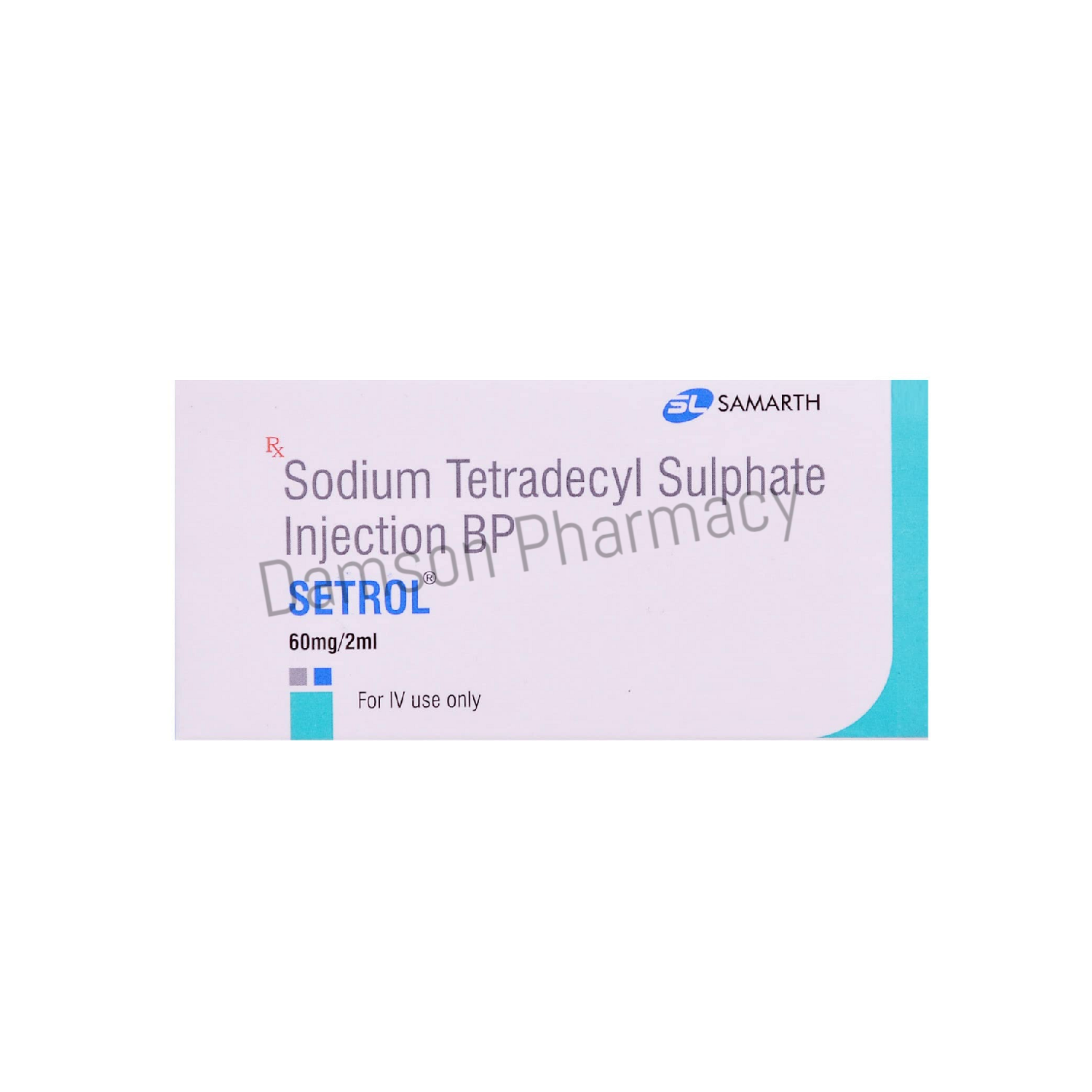
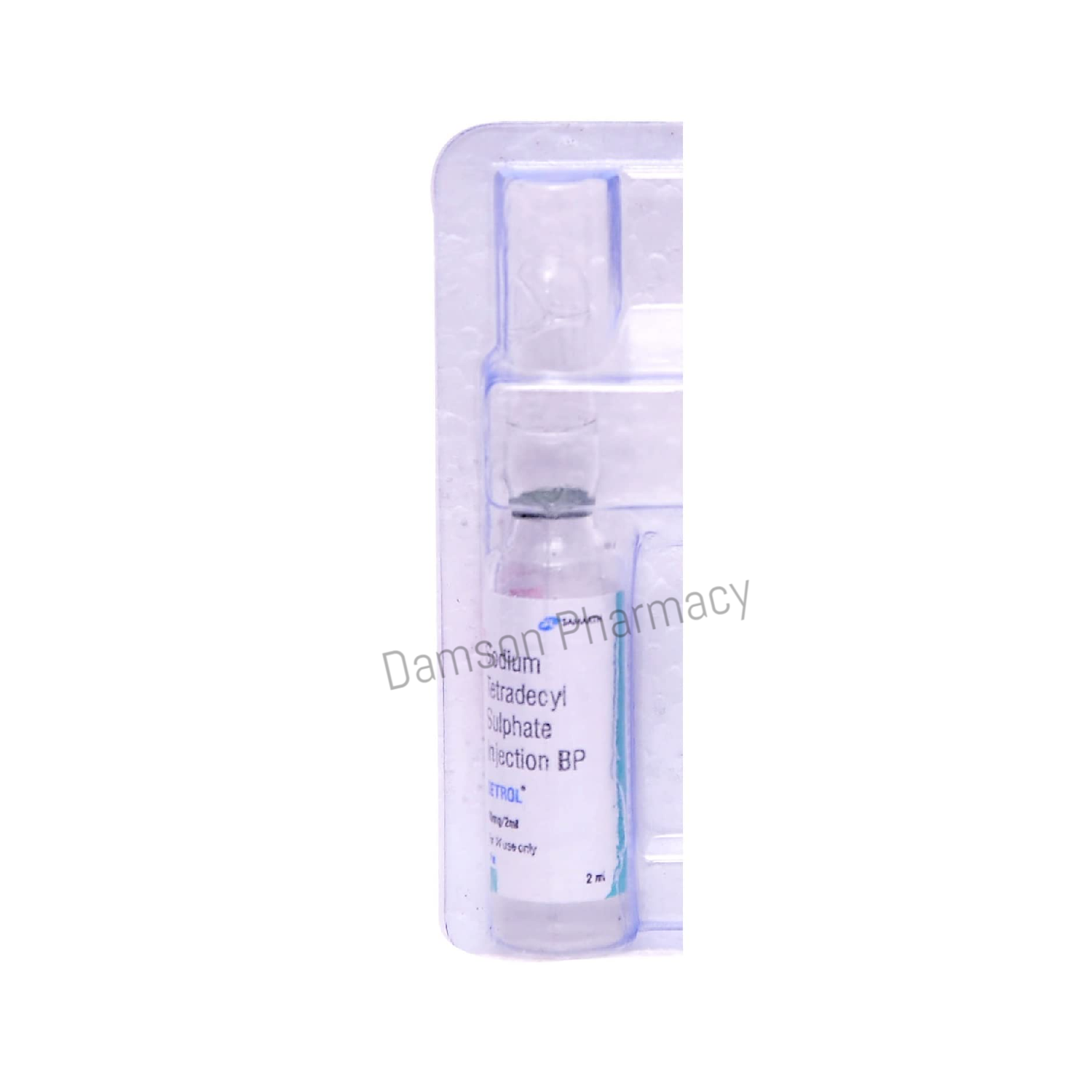
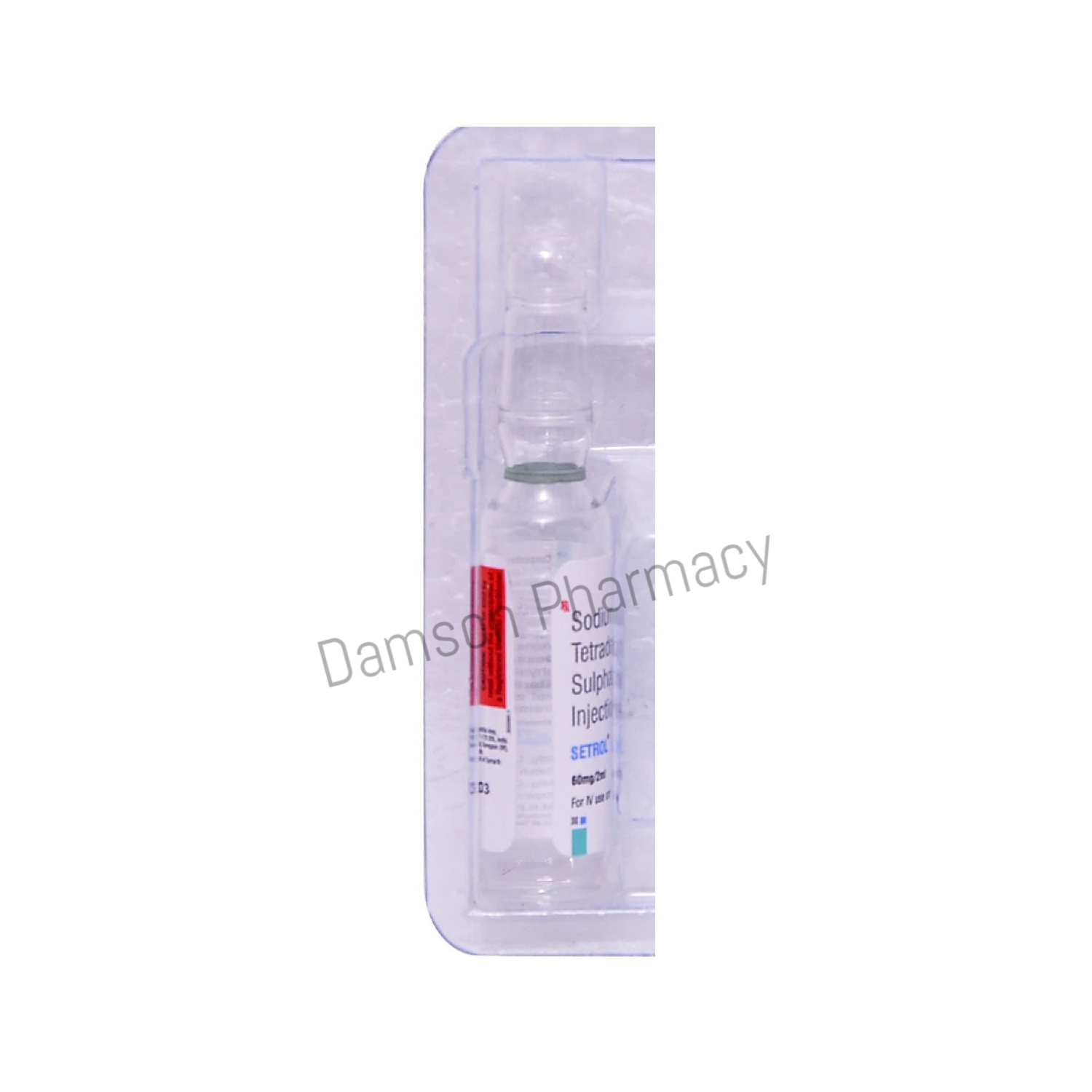
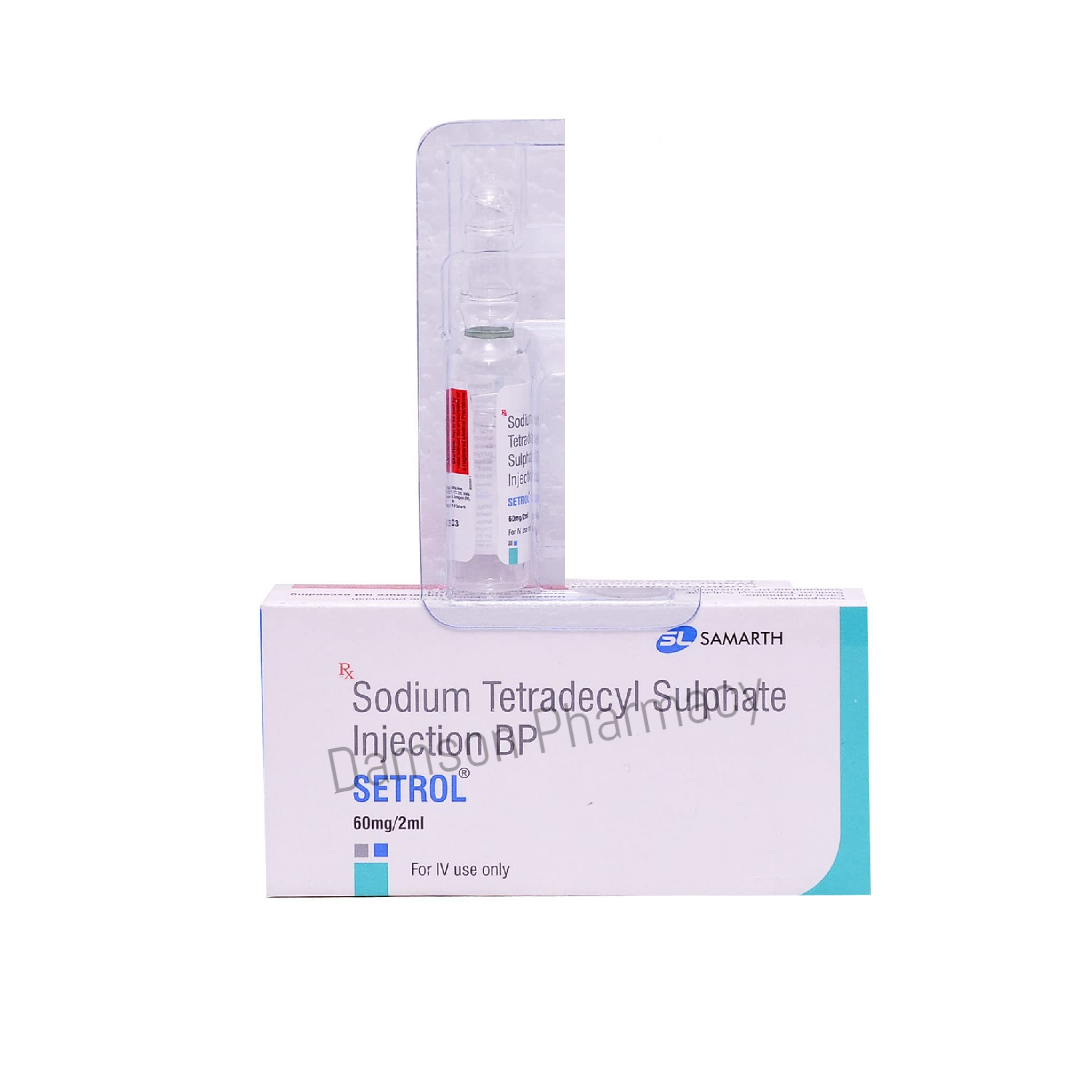
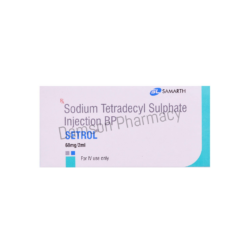
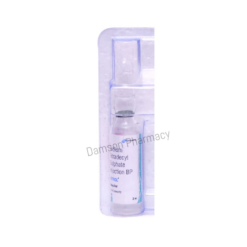
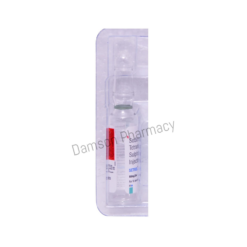
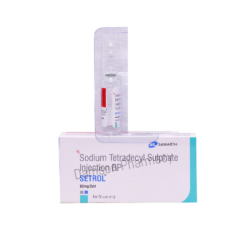
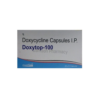
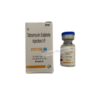
Reviews
There are no reviews yet.